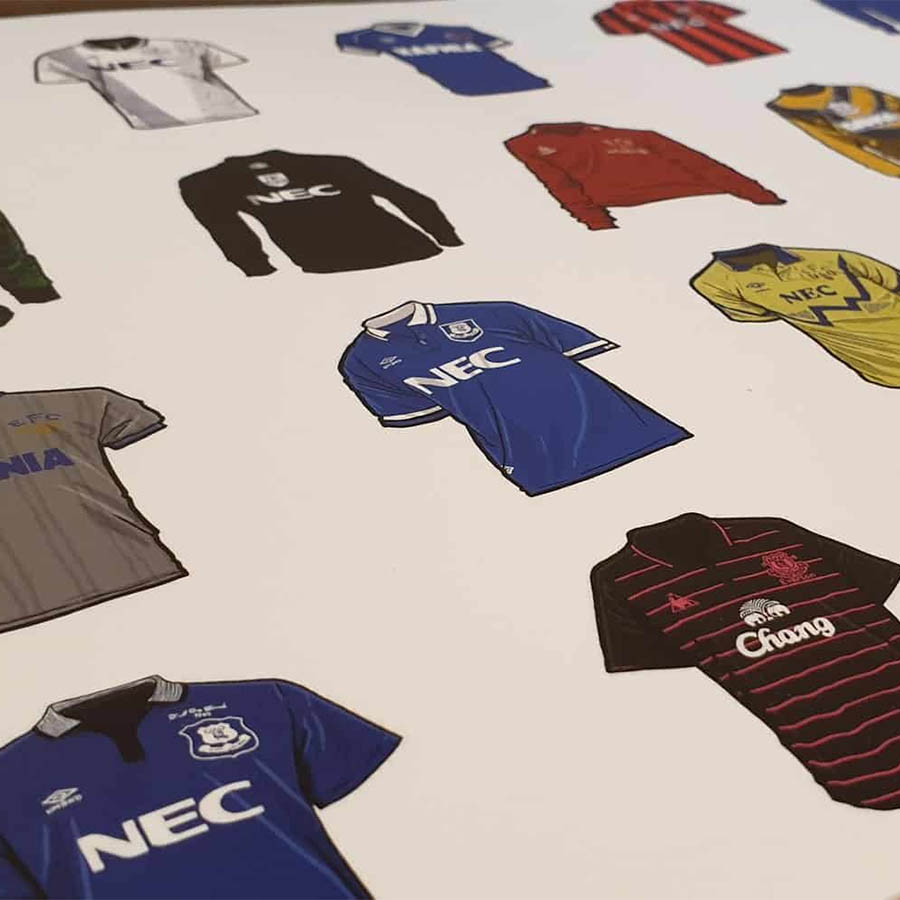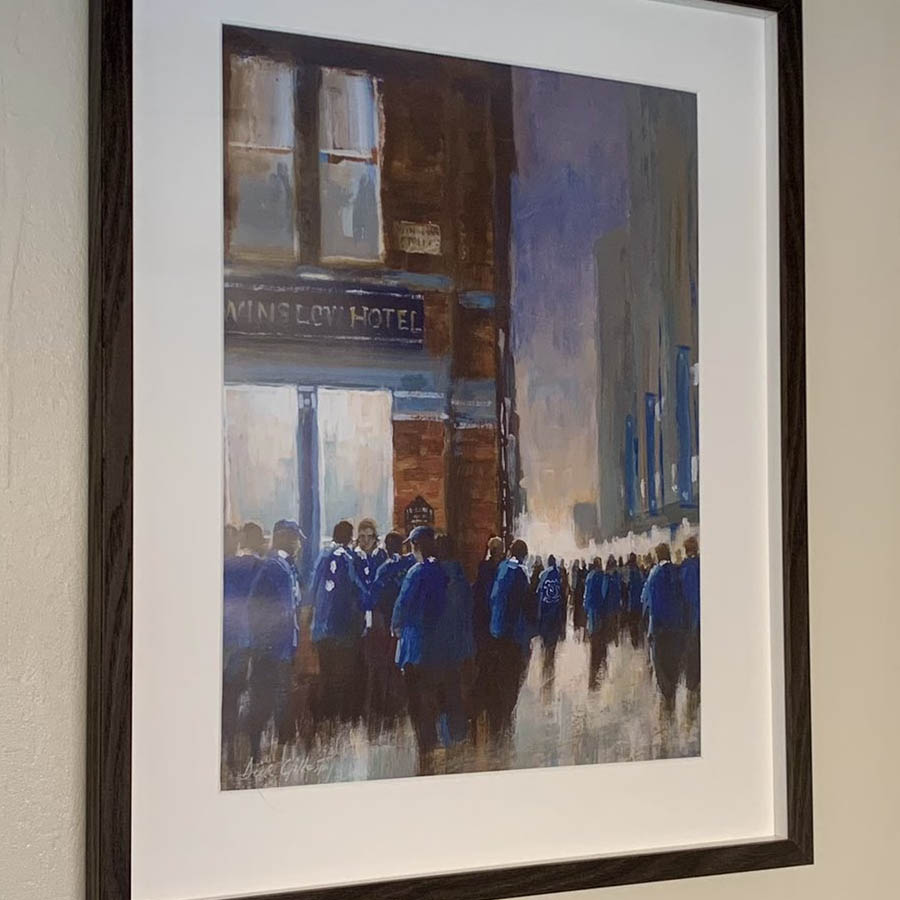Robin Sisland
Player Valuation: £5m
Not sure this is strictly an Everton thread but as it relates to the call by the Everton supporting Culture Secretary for football to 're-examine it's relationship with money' I'm hoping we can stretch a point. Especially as it's precisely the kind of owner that he's criticising that we appear to be looking for.
Here's the article which appeared in the Guardian today.
Is it just me or do all government ministers really look like they live on a diet of live rodents?
The government made its long-awaited intervention in the running of English football yesterday when the culture secretary, Andy Burnham, called on the game's authorities to respond to a variety of threats to its long-term future.
Speaking at the Supporters Direct conference in Westminster yesterday, Burnham said that while the Premier League is "the world's most successful domestic sporting competition," it risks becoming too predictable on the field, not developing sufficient homegrown players, and, more broadly, "losing further touch with its traditional supporter base" if it continues on its current path.
Restating his view that "football needs to reassess its relationship with money", he asked the FA as well as the Premier and Football Leagues to consider whether:
· The rules governing finances can be made consistent between the leagues
· There can be greater transparency and scrutiny of clubs' ownership, including the amount of debt used to finance a takeover and whether that debt is "sustainable and in the wider interests of the game"
· The rules which penalise clubs falling into insolvency can be reviewed
· The rule which requires insolvent clubs to pay football debts in full, unlike other debts, should be reviewed
· The fit-and-proper-person test for club directors and 30% shareholders needs to be strengthened
· "Competitive balance" can be promoted, "preventing the game becoming too predictable"
· "Everything possible is being done to bolster the national side" and there is "a case for introducing a specified number of homegrown players" into club sides.
The issues, relating to the ownership and financing of clubs, the financial inequalities which determine playing success and the suggestion of quotas for homegrown players, are hugely controversial, because the Premier League, in particular, is not expected to be keen on any interference with its commercial approach, which has reaped rich rewards for its clubs. Burnham insisted yesterday that the government is right to raise concerns because of football's importance to supporters, the communities in which clubs are based, and the public at large.
"I am inviting the three football authorities to take a co-ordinated and in-depth look at the questions I have laid out and respond with their thoughts in the New Year," he said.
The FA chairman, Lord Triesman, also speaking at the conference, welcomed Burnham's intervention, appealing for the three bodies to work constructively together: "I hope we can have the discussion in a grown up fashion," Triesman said, "and not feel this is simply jostling in some kind of turf war."
Lord Mawhinney, the Football League chairman, agreed, saying: "The secretary of state has listed important questions and we will certainly consider them in a constructive spirit."
The Premier League were more restrained, saying they had not yet received a formal letter from Burnham.
"When we do," a spokesman said, "we will give serious consideration to the issues he raises, discuss them with the Football League and FA where appropriate and respond to the government accordingly."
Here's the article which appeared in the Guardian today.
Is it just me or do all government ministers really look like they live on a diet of live rodents?
The government made its long-awaited intervention in the running of English football yesterday when the culture secretary, Andy Burnham, called on the game's authorities to respond to a variety of threats to its long-term future.
Speaking at the Supporters Direct conference in Westminster yesterday, Burnham said that while the Premier League is "the world's most successful domestic sporting competition," it risks becoming too predictable on the field, not developing sufficient homegrown players, and, more broadly, "losing further touch with its traditional supporter base" if it continues on its current path.
Restating his view that "football needs to reassess its relationship with money", he asked the FA as well as the Premier and Football Leagues to consider whether:
· The rules governing finances can be made consistent between the leagues
· There can be greater transparency and scrutiny of clubs' ownership, including the amount of debt used to finance a takeover and whether that debt is "sustainable and in the wider interests of the game"
· The rules which penalise clubs falling into insolvency can be reviewed
· The rule which requires insolvent clubs to pay football debts in full, unlike other debts, should be reviewed
· The fit-and-proper-person test for club directors and 30% shareholders needs to be strengthened
· "Competitive balance" can be promoted, "preventing the game becoming too predictable"
· "Everything possible is being done to bolster the national side" and there is "a case for introducing a specified number of homegrown players" into club sides.
The issues, relating to the ownership and financing of clubs, the financial inequalities which determine playing success and the suggestion of quotas for homegrown players, are hugely controversial, because the Premier League, in particular, is not expected to be keen on any interference with its commercial approach, which has reaped rich rewards for its clubs. Burnham insisted yesterday that the government is right to raise concerns because of football's importance to supporters, the communities in which clubs are based, and the public at large.
"I am inviting the three football authorities to take a co-ordinated and in-depth look at the questions I have laid out and respond with their thoughts in the New Year," he said.
The FA chairman, Lord Triesman, also speaking at the conference, welcomed Burnham's intervention, appealing for the three bodies to work constructively together: "I hope we can have the discussion in a grown up fashion," Triesman said, "and not feel this is simply jostling in some kind of turf war."
Lord Mawhinney, the Football League chairman, agreed, saying: "The secretary of state has listed important questions and we will certainly consider them in a constructive spirit."
The Premier League were more restrained, saying they had not yet received a formal letter from Burnham.
"When we do," a spokesman said, "we will give serious consideration to the issues he raises, discuss them with the Football League and FA where appropriate and respond to the government accordingly."



















